Table of Contents
Once upon a digital time, two storytelling heroes emerged in the business world: content writing vs. blogging. Like siblings raised in the same household, they share DNA but developed distinctly different personalities. For small businesses navigating the content marketing landscape, understanding these differences isn’t just academic—it’s essential for crafting the perfect story for your brand.
In today’s digital marketplace, content creation has evolved from simple website copy into a complex ecosystem of storytelling formats. From snappy social media posts to comprehensive white papers, each piece of content serves as a building block in your brand’s narrative. This evolution has made content marketing for small businesses both more accessible and more challenging than ever before.
Why does this matter to your business? Because choosing the right content format can mean the difference between whispering into the void and starting meaningful conversations with your audience. Let’s unravel these storytelling siblings together.
Content Writing vs. Blogging: Understanding the Difference

What is Content Writing?
Content writing is the sophisticated older sibling in the digital marketing family. It’s the strategic creation of purposeful content designed to inform, educate, or persuade readers while achieving specific business objectives. Think of it as the classic novelist who meticulously plans each chapter before putting pen to paper.
Content writing encompasses various formats:
- Website copy
- Product descriptions
- White papers
- Email campaigns
- Technical documentation
What sets content writing apart is its structured approach and strategic intent? When using HubSpot as your CMS, content writing becomes even more powerful, offering templates and tools specifically designed for creating polished, professional content that converts.
What Makes Blogging Unique?
Blogging is the creative free spirit of the family. While it still requires strategy, blogging thrives on personality, authenticity, and building genuine connections with readers. It’s like having a heartfelt conversation with your audience over coffee.
When creating content with StoryChief or managing your blog through HubSpot’s CMS, you can infuse your posts with:
- Personal experiences and insights
- Industry observations
- Behind-the-scenes glimpses
- Timely responses to current trends
The magic of blogging lies in its ability to foster community engagement. Comments, shares, and discussions create a two-way street between your brand and its audience. This interaction builds trust and loyalty in ways that traditional content writing often can’t match.
The Strategic Value for Small Businesses

Content Writing Benefits
Think of content writing as your business’s professional ambassador. When it comes to content marketing for small businesses, well-crafted content pieces serve as your brand’s foundation. Using HubSpot as your CMS amplifies these benefits through powerful analytics and integration capabilities.
Content writing builds your brand authority through:
- Consistent messaging across all platforms
- In-depth exploration of industry topics
- Professional presentation of expertise
- Data-driven content strategies
The SEO advantages are particularly noteworthy. Strategic content writing helps you:
- Target-specific keywords systematically
- Create cornerstone content that attracts backlinks
- Develop structured content hierarchies
- Optimize for featured snippets
For lead generation, content writing shines through:
- Targeted landing pages
- Compelling call-to-actions
- Educational resources for lead magnets
- Integration with HubSpot’s marketing tools for automated nurturing
Blogging Advantages
While content writing builds your professional image, blogging creates your brand’s personality. Creating content with StoryChief allows you to maintain a consistent voice while reaching wider audiences through various channels.
Blogging excels at:
- Sharing personal insights and experiences
- Creating relatable industry narratives
- Fostering community discussions
- Building loyal readership
Thought leadership emerges naturally through:
- Regular industry commentary
- Trend analysis and predictions
- Personal success stories and lessons learned
- Expert interviews and collaborations
When to Use Each Approach

Content Writing Sweet Spots
Content writing shines brightest in scenarios requiring precision and permanence. When using HubSpot as your CMS, these pieces become even more powerful through strategic placement and optimization.
Perfect for:
- Product descriptions that convert
- Service pages that clearly communicate value
- White papers that establish expertise
- Case studies that demonstrate success
- Technical documentation that builds trust
Each piece should maintain consistent branding while serving specific business objectives. Think of these as your evergreen assets that continue working for your business long after publication.
Perfect Blogging Scenarios
Blogging thrives in situations where personality and timeliness matter most. Creating content with StoryChief makes it easier to maintain an engaging presence while managing multiple channels.
Ideal for:
- Sharing industry insights and trends
- Giving followers behind-the-scenes peeks
- Creating detailed how-to guides
- Announcing company milestones
- Engaging with community feedback
The key is authenticity – let your brand’s personality shine through while providing real value to your readers. Think of these posts as ongoing conversations with your audience, building relationships post by post.
Tools and Platforms That Make Life Easier

HubSpot as Your Content Hub
When it comes to content marketing for small businesses, using HubSpot as your CMS transforms the way you create and manage content. It’s like having a Swiss Army knife for your digital marketing needs.
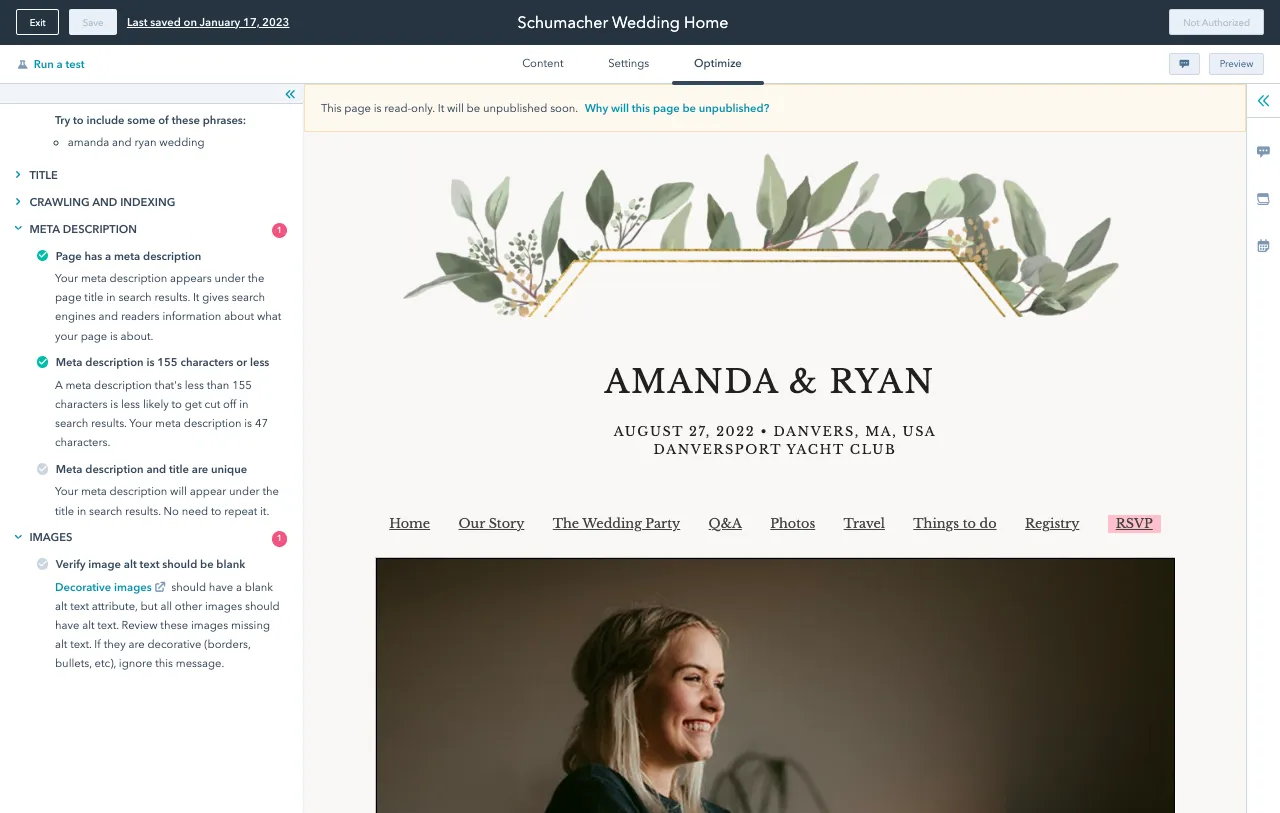
HubSpot’s content creation features include:
- Drag-and-drop content editors
- SEO suggestions in real-time
- Mobile-responsive templates
- A/B testing capabilities
The platform’s analytics provide crystal-clear insights into:
- Content performance metrics
- Audience behavior patterns
- Conversion tracking
- ROI measurement
Small businesses particularly benefit from:
- All-in-one marketing solution
- Scalable pricing options
- Automated workflows
- Integrated CRM functionality
StoryChief for Enhanced Blogging
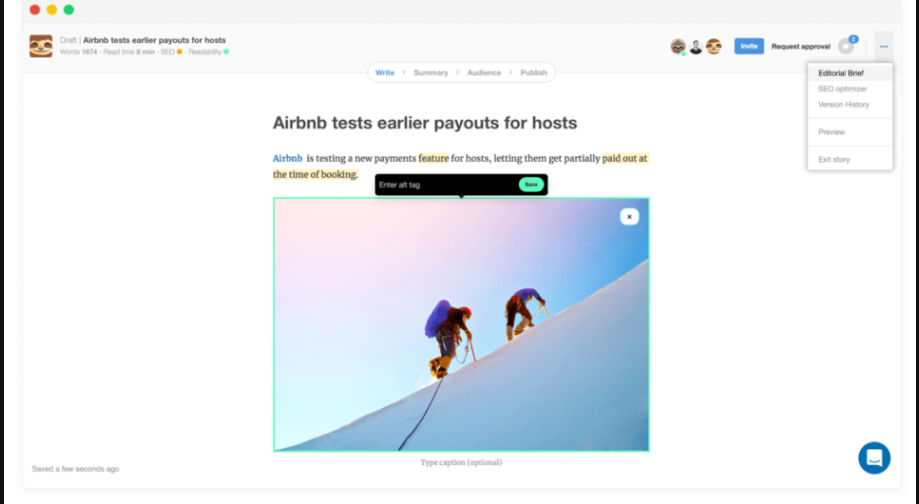
Creating content with StoryChief adds another layer of magic to your blogging strategy. Think of it as your blogging co-pilot, helping you navigate the content creation journey with ease.
Key features include:
- Real-time collaboration tools
- Multi-channel distribution
- SEO assistance
- Editorial calendar management
The platform excels at:
- Content workflow automation
- Social media integration
- Performance analytics
- Brand voice consistency
Creating a Balanced Content Strategy
When comparing content writing vs blogging, success lies in finding the perfect harmony between both approaches. It’s like orchestrating a content symphony where each piece plays its part.To combine both approaches effectively:
- Map content types to customer journey stages
- Align topics with business objectives
- Balance educational and promotional content
- Create content clusters that support each other
For content calendar planning:
- Schedule regular blog posts for consistency
- Plan strategic content pieces around key business events
- Allow flexibility for timely topics
- Factor in seasonal trends
Measure success through:
- Engagement metrics
- Conversion rates
- SEO performance
- Lead quality
- Customer feedback
Tips for maintaining consistency:
- Create content templates
- Develop a clear brand voice guide
- Build a content review process
- Schedule regular content audits
- Stay true to your brand’s personality while adapting to audience needs
Wrapping Up Our Content Adventure
The journey through content writing vs blogging reveals that both are essential ingredients in your digital marketing recipe. While content writing serves as your brand’s professional foundation, blogging adds the personal touch that makes your brand memorable. When combined thoughtfully, they create a powerful strategy for connecting with your audience and achieving your business goals.
Ready to dive into content creation? Here’s your quick-start guide:
- Start with a content audit to identify gaps
- Choose the right tools (HubSpot CMS for structured content, StoryChief for dynamic blogging)
- Create a simple content calendar
- Begin with one format and gradually expand
- Monitor results and adjust accordingly
Remember, content marketing for small businesses doesn’t have to be overwhelming. Whether you’re crafting detailed service pages or sharing behind-the-scenes stories, each piece contributes to your brand’s unique narrative.
The key is to start somewhere and let your strategy evolve naturally. Your audience will appreciate authentic content that provides real value, regardless of the format you choose.
Ready to Transform Your Content Strategy?
Take Your Content Creation to the Next Level
Maria is an accomplished digital marketing professional, specializing in content marketing and SEO. She's a neurodivergent who strives to raise awareness, and overcome the stigma that envelopes around mental health.
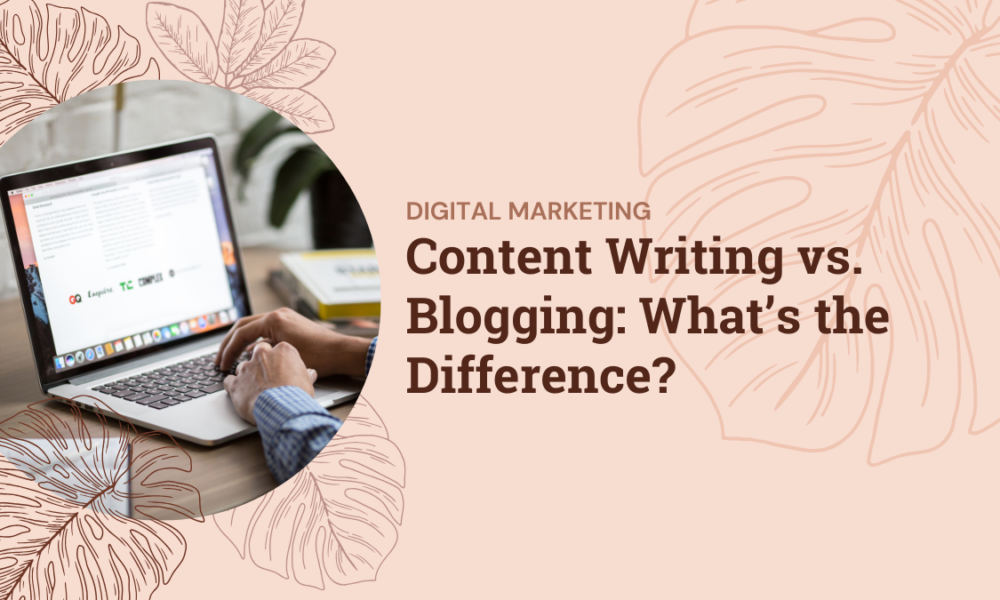


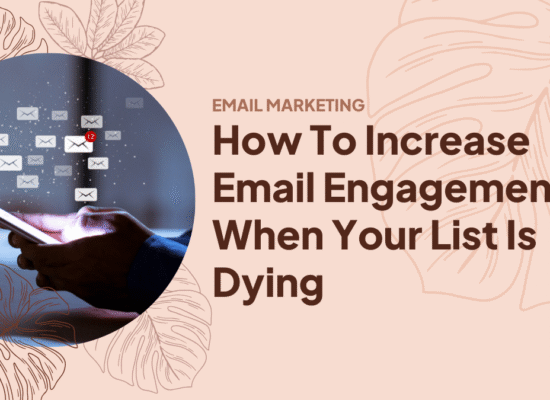
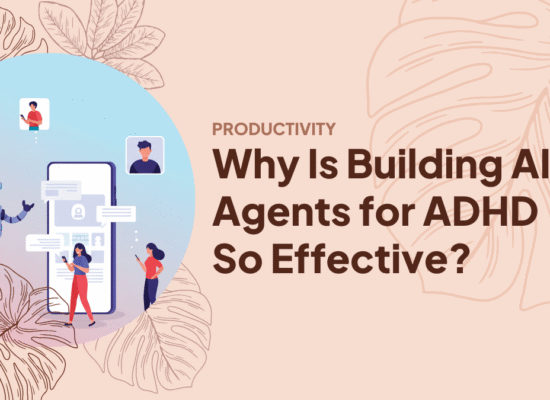
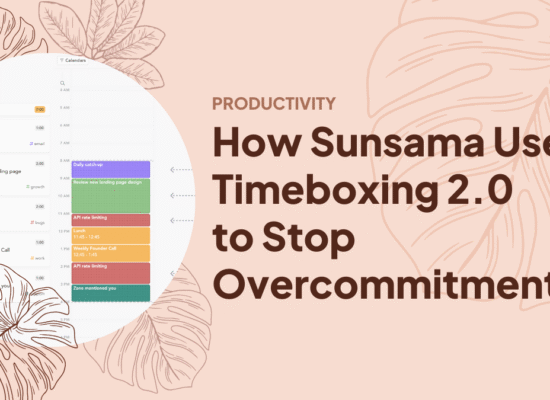
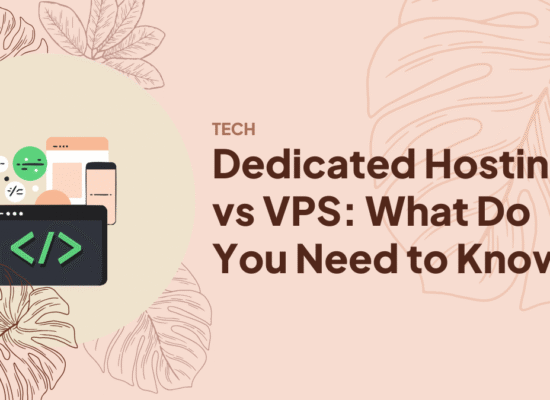
No Comment! Be the first one.